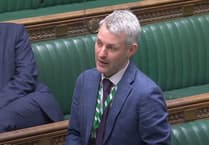The South East Rivers Trust (SERT) recently completed a chemical pollution survey across three local rivers to understand what harmful substances are polluting local waterways.
The project was funded by the Environment Agency and carried out in partnership with Imperial College London. The SERT Catchment team used special devices called passive chemical samplers to detect various chemicals.
The survey focused on three rivers within the SERT Catchments:
- River Blackwater in the River Loddon Catchment
- Stanford Brook in the River Mole Catchment
- North Wey in the River Wey Catchment
At each tributary, a sampling device was placed at five different locations along the river’s course. The devices were positioned to capture the influence of both urban and rural areas. These devices stayed in the water for two weeks before being retrieved and sent to a lab for analysis.
Some of the most concerning chemicals detected include:
- Clarithromycin (an antibiotic)
- Imidacloprid (a neonicotinoid pesticide)
- Fipronil (used in flea and tick treatments)
SERT Catchment Manager Dr Lewis Campbell said: “The presence of these chemicals in our rivers is a serious issue. Antibiotics in the water can lead to the spread of antibiotic-resistant bacteria, which is a growing public health concern.
“Pesticides like neonicotinoids are particularly harmful to aquatic invertebrates such as dragonflies, snails and shrimps, which are crucial to the health of the entire river ecosystem.”
Part of the River Wey flows through Woking's villages at West Byfleet, Pyrford and Old Woking. The river is a conservation area.





Comments
This article has no comments yet. Be the first to leave a comment.